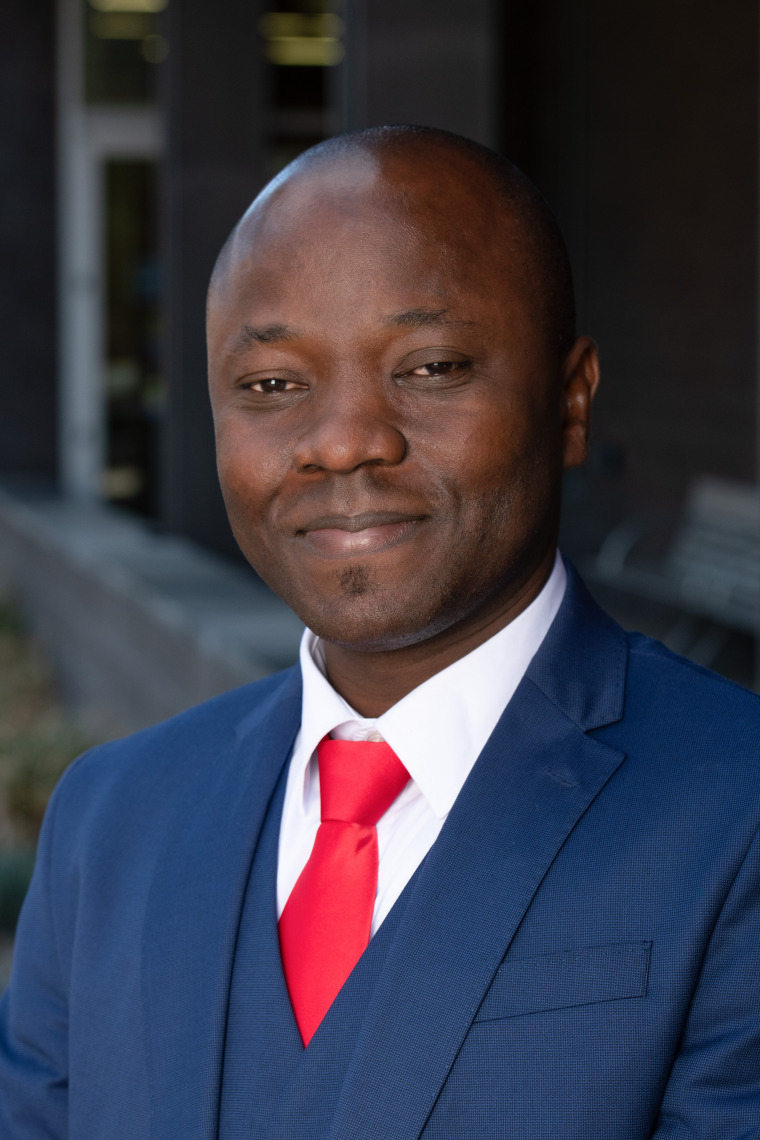Thomas Korankye, Ph.D., CFP®

McClelland Park Room 301G
650 N Park Ave
Tucson, Arizona 85721-0078
Explore the Financial Decisions and Well-Being (FINDWELL) Lab led by Dr. Thomas Korankye at https://sites.arizona.edu/thomas-korankye/
Degree(s)
- Doctor of Philosophy in Personal Financial Planning, Texas Tech University, Texas.
- Master of Science in Finance, Texas Tech University, Rawls College of Business, Texas.
- Master of Science in Personal Financial Planning, Texas Tech University, Texas.
- Master of Science in International Fisheries Management, University of Tromsø, Norway.
- Degree of Master in Finance, University of Skӧvde, Sweden.
- Bachelor of Science in Administration (Banking and Finance option), First Class Honors, University of Ghana, Accra.
- Retail Financial Services.
- Applied Family Investment Planning and Savings Strategies.
- Communication and Counseling
Korankye, T., Pearson, B., & Liu, Y. (2024). Examining U.S. millennial retirement plan participation decisions: The roles of employer contributions and automatic enrollment. Journal of Risk and Financial Management, 17(2), 52. https://doi.org/10.3390/jrfm17020052
Pearson, B., Korankye, T., & Qing, D. (2024). The retirement consumption puzzle: a mental accounting explanation. Journal of Financial Counseling and Planning, JFCP–2022–0098.R1. https://doi.org/10.1891/JFCP-2022-0098.
Korankye, T. (2023). Student loan debt in retirement: understanding the correlates and implications for policy, practice, and research. Managerial Finance, pp 1-20. https://doi.org/10.1108/MF-11-2022-0543
Korankye, T. (2023). Student loan debt and U.S. married households' stock investment decisions. Economic Analysis Letters. 2(4), 13-18. https://doi.org/10.58567/eal02040003
Korankye, T., & Pearson, B. (2023). Managing Household Finances: How Engaging in Financial Management Activities Relates to the Experiential Well-Being of Americans. Journal of Risk and Financial Management, 16(2), 132. https://doi.org/10.3390/jrfm16020132.
Liu, Y. & Korankye, T., Pearson, B. (2023). Personality traits and student loan holding for self and for children among baby boomers. Journal of Financial Counseling and Planning. 34(2), 169-183. https://doi.org/10.1891/JFCP-2022-0068
Korankye, T., Pearson, B., Salehi, H. (2023). Financial advice use and saving for children’s college education: A propensity score matching approach. Journal of Financial Counseling and Planning, 34(1), 96-111. https://doi.org/10.1891/JFCP-2021-0069.
Korankye, T., Pearson, B. (2022). The nexus between investor sophistication and annuity insurance ownership: Evidence from FINRA’s National Financial Capability Study. Managerial Finance. https://doi.org/10.1108/MF-04-2022-0169
Pearson, B. & Korankye, T. (2022). The association between financial literacy confidence and financial satisfaction. Review of Behavioral Finance. https://doi.org/10.1108/RBF-03-2022-0090
Korankye, T., & Lartey J. K. S. (2022). The subjective well-being of self-employed persons: National survey evidence from Ghana. Journal of Economic and Administrative Sciences. https://www.emerald.com/insight/content/doi/10.1108/JEAS-12-2021-0248/full/html
Pearson, B., Qing, D., & Korankye, T. (2022). The role of financial relativity in loss aversion sensitivity. Empirical Economics Letters. 21(8).
Korankye, T. (2021). Taking out a student loan for your child can hurt your own financial well-being. The Conversation, December 17, 2021. https://theconversation.com/taking-out-a-student-loan-for-your-child-can-hurt-your-own-financial-well-being-172939
Pearson, B., Korankye, T. & Salehi, H. (2021). Comparative advantage in the household: Should one person specialize in a household’s financial matters? Journal of Family and Economic Issues. 1-11. https://doi.org/10.1007/s10834-021-09807-y
Korankye, T. & Kalenkoski, M. C. (2021). Student debt and financial well-being of the borrower: Does it matter whom the debt is for? Journal of Personal Finance, 20(2), 75-89. Available at SSRN: https://ssrn.com/abstract=4055654
Kalenkoski, C. M., Anuarbe, M. L. & Korankye, T. (2021). Differences in the experiential well-being of Hispanics and non-Hispanics engaged in elder care. Journal of Family and Economic Issues, 1-10. https://doi.org/10.1007/s10834-021-09763-7
Korankye, T. & Kalenkoski, M. C. (2021). Determinants of parents’ college education saving decisions. Journal of Personal Finance, 20(1), 8-25. Available at SSRN: https://ssrn.com/abstract=4055633
Korankye, T. & Kalenkoski, C. M. (2021). The effect of households’ student debt on life satisfaction. Journal of Family and Economic Issues, 42(4), 757-772. https://doi.org/10.1007/s10834-021-09753-9
Kalenkoski, M. C. & Korankye, T. (2021). Enriching lives: How spending time with pets is related to the experiential well-being of older Americans. Applied Research in Quality of Life, 1-22. https://doi.org/10.1007/s11482-020-09908-0
Korankye, T., & Guillemette, M. (2020). Student debt and stock-ownership decisions of U.S. households. Applied Economics Letters. https://doi.org/10.1080/13504851.2020.1757026
Outstanding Reviewer Award in 2022, Journal of Financial Counseling and Planning. Recognized for exceptional contributions to peer review quality and dedication to the advancement of financial counseling and planning.
National Endowment for Financial Education/Knology Financial Education Database Training Fellowship. May 2022 – September 2022.
Recipient of the 2021 Academy of Financial Counseling and Planning Education (AFCPE®) Outstanding Symposium Research Award, with co-authors Blain Pearson and Hossein Salehi.

